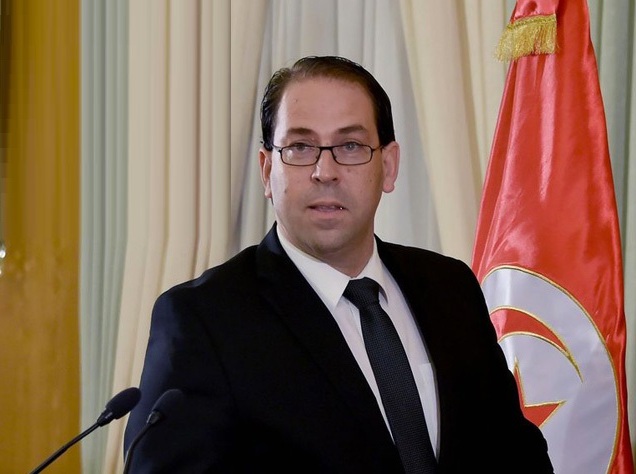(AhlulBayt News Agency) - Ahead The Tunisian parliament voted in July to dismiss the Prime Minister Habib Essid who faced a great deal of criticism over government performance. On last Saturday Yousef al-Shahed was presented to form a new government.
Yousef al-Shahed has received ten days from the parliament to make efforts to get vote of confidence for his government. He has reinstated seven ministers of Essid's government including the interior minister, foreign minister, and defense minister, and so offered their names again to the parliament for approval vote.
The distinctive point about the new government of Tunisia is that a variety of parties and independent figures make up its main structure. It is suggested that since removal of the government of former President Zine El Abidine Ben Ali in 2011 during uprising, this is the first time that the new government has managed to attract such a big number of political parties into itself in a bid to scale down the current tensions with the trade and labor syndicates.
Another important point that exists in government of PM Yousef al-Shahed is giving three posts of ministers to the women. The women-run ministries include youth ministry, ministry of industry, energy, and mines, as well as ministry of health.
As it was noted, the largest number of the political parties has sent ministers to the cabinet of Yousef al-Shahed. Nidaa Tounes, a secularist party that holds 67 seats in the Tunisian parliament, has secured four ministries in the new al-Shahed government including transportation ministry, tourism ministry, foreign ministry, and education ministry. This comes while the Ennahda Movement, an Islamist party that holds 69 seats in the parliament, was given three ministry posts of the trade ministry, labor ministry, and ministry of information and communication technology. Afek Tounes, a center-right political party in the country, would hold three ministries including the public health ministry, ministry of domestic development, and ministry of environment. Additionally, some former officials of the Tunisian General Labour Union would be part of the new government.
However, the government of PM Yousef al-Shahed, who said that his priorities would be battling terrorism, fighting corruption, creating jobs, convenient management of the fiscal and financial matters, and protecting the environment, would also have ahead some problems and challenges.
This is why the new government is planning to address the political demands that plagued the earlier governments. It majorly seeks to revitalize the country's economy, something the earlier governments following ousting of ben Ali have failed to make any success in.
The anticipations suggest that the new government would have no further chances in comparison to the earlier governments. But because the new government is not formed on a post-sharing base, it is expected to consider meritocracy during its work, as it is predicted that the workers' unions along with the political parties assist the fresh cabinet.
It can be said that further hopes are now set on the new government. However, the wide-ranging corruption, high unemployment rates, and political inexperience of the prime minister have caused some groups to suggest that the success chances of the government of Yousef al-Shahed are weak.
Anyway, it seems that the new government will win the parliamentary approval without considerable problems. But the economic and political conditions would make the government face an array of challenges. The political and security situation of the country is fragile, the foreign debts are very heavy, the imports have seen a sharp rise, the unemployment rates among the young people are very high, and the workers recently faced tough economic circumstances.
All these issues raise a slew of questions and doubts, and only through passage of time that it can be decided if the government would be successful in or incapable of dealing with the problems ahead.
/129
source : Websites
Sunday
28 August 2016
7:11:22 AM
774977

Ahead The Tunisian parliament voted in July to dismiss the Prime Minister Habib Essid who faced a great deal of criticism over government performance. On last Saturday Yousef al-Shahed was presented to form a new government.
